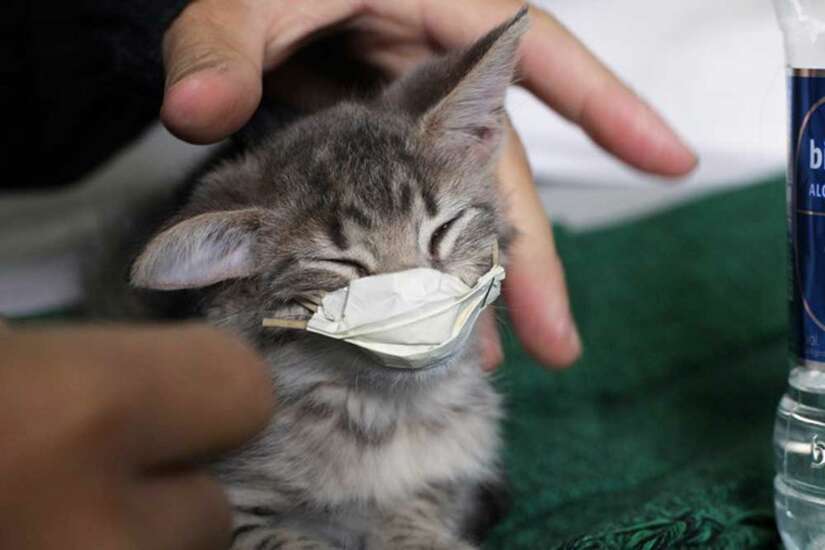THE increasing number of people getting infected with COVID-19 could also put the animals at risk of exposure especially to owners with coronavirus whether they have symptoms or asymptomatic.
Health experts have warned people with the virus to avoid cuddling their pets or keep them indoors to cut the risk of spreading germs.
It was reported that the first dog in the world to catch coronavirus died after it was declared disease-free and returned home to its owner in Hong Kong.
The 17-year-old Pomeranian, whose owner caught Covid-19, had been quarantined at a government facility but returned home over the weekend.
This time, it’s another way around. A cat in Britain caught the coronavirus from its owners. The British Veterinary Association advised infected people to restrict contact with animals.
The cat was diagnosed with the virus after being tested by scientists at Glasgow University, who screened hundreds of samples from felines. The diagnosis was confirmed by the Animal and Plant Health Agency laboratory in Weybridge, Surrey.
Reports said cats become infected in the same way as humans do, by inhaling infected droplets after an infected person coughs or sneezes.
There have been a handful of cases around the world and almost all appear to have caught it off their owners. Luckily, animals are far less susceptible to infection. The biggest cat to fall victim is Nadia, a four-year-old Malayan tiger at New York’s Bronx Zoo. She made a full recovery.
However, there is evidence that cats can spread coronavirus to other cats.
In May, researchers at the University of Wisconsin conducted an experiment when they infected three cats with the virus, then put three Covid-free felines in with them.
The three newcomers went on to test positive after catching it from the infected animals.
There is not much evidence that animals transmit it to humans, with research suggesting they do not “shed” enough virus to be infectious.
However, scientists have warned that animals could act as “fomites”, in the same way as surfaces such as door handles do.
For example, if an infected person coughed on their dog, the virus could survive on its fur and be passed to another person when they stroke it.
To prevent infection in your household, experts suggested that pet owners should wash their hands before and after contact with animals. Sick or infected people should restrict contact with animals. (DailyMail)

